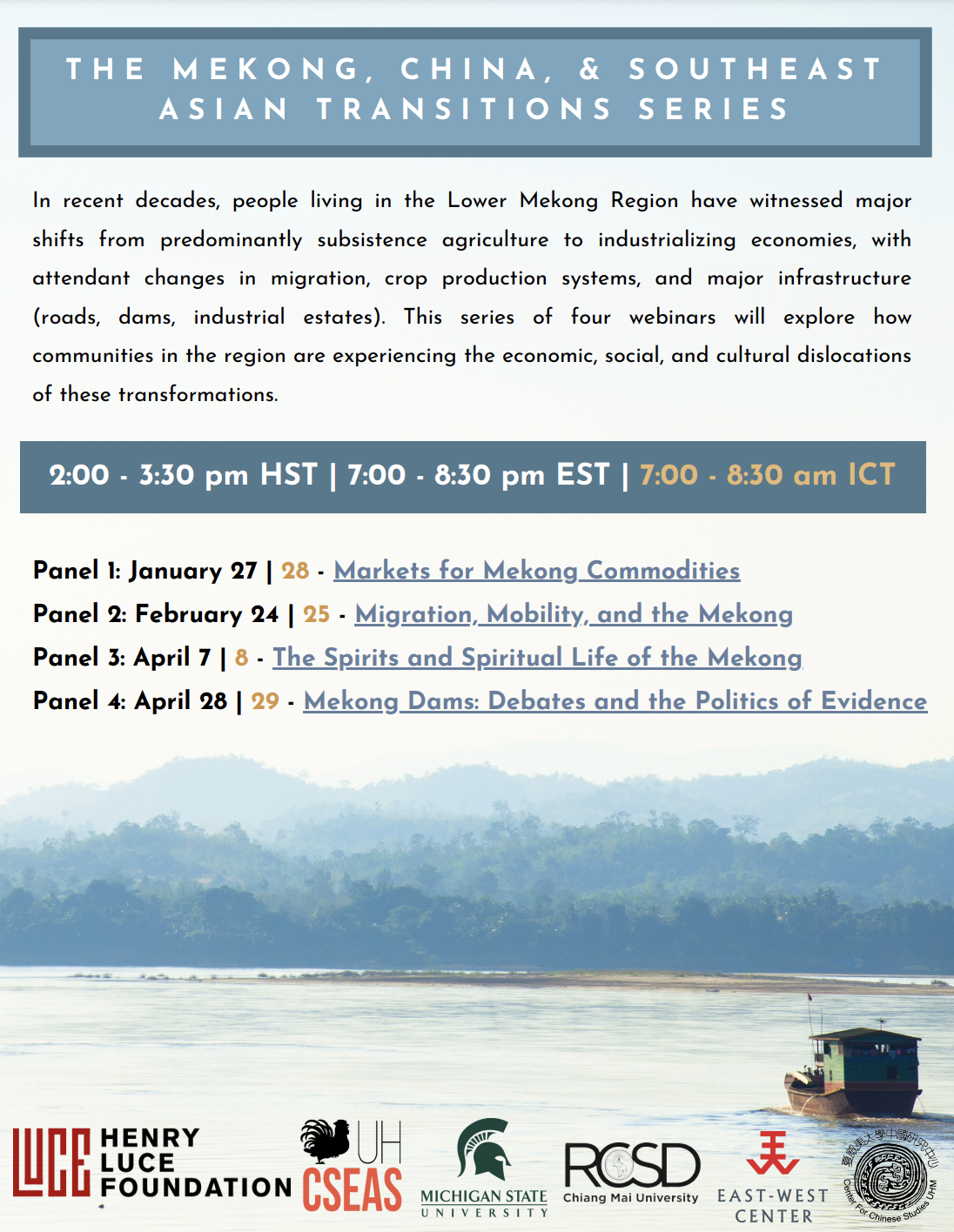15.40-17.30, Friday, 4 December 2020 via Zoom
Carl Middleton from CSDS will be presenting on this event.
The Asia Research Institute, National University of Singapore, is going to organize an inter-disciplinary workshop on "Transboundary Environmental Governance in Southeast Asia" to explore how, why, when and what forms of transboundary environmental governance are emerging in Southeast Asia.
The workshop will be conducted online via Zoom. To register, please visit this link here and the organizer will reply prior to the event with the Zoom link.
Panel IV. Hybrid Governance of Transboundary Commons
Chairperson: Zu Dienle Tan, National University of Singapore
Panelists:
Beyond the Commons/Commodity Dichotomy in the Lancang-Mekong Basin: Implications for Transboundary Water Governance by Carl Middleton, Chulalongkorn University
Unruly Fires: Nonhumans as Transboundary Actants in Governing Indonesia’s Wildfires by Rini Astuti, National University of Singapore and Yuti Ariani Fatimah, Nanyang Technological University
A Multi-Scalar Political Economy Analysis of Thailand’s Widespread Urban Air Pollution by Danny Marks, Dublin City University
Path Dependency of Land Use in Southeast Asian Peatlands by Lahiru Wijedasa, National University of Singapore
Abstract:
Beyond the Commons/Commodity Dichotomy in the Lancang-Mekong Basin: Implications for Transboundary Water Governance
Extensive hydropower construction across the Lancang-Mekong basin is changing the river’s hydrology and ecology, with implications for the availability and governance of common pool resources, as well as for riparian livelihoods. In this paper, I assess how the transboundary commons are being reworked as the river is transformed by large dam operation. The paper applies an analytical lens that seeks to move beyond a commons-commodity dichotomy in water related resource governance (Paerregaard and Andersen, 2019) to argue that at the present time the Lancang-Mekong River is neither fully commodified nor fully a commons, but rather a hybrid of the two. The paper will examine how transboundary hybrid governance regimes are reworking the hybrid commons, drawing attention to how states, communities, and even private actors, seek to maintain particular types of commons, whilst simultaneously either furthering or resisting commodification of some properties of the river. The paper will discuss the implications of this hybrid governance perspective for recent hydropolitics in the river basin and existing and new transboundary water governance institutions, namely the Mekong River Commission and the Lancang-Mekong Cooperation framework.
For more information about this event, please visit the organizer’s webpage here.




